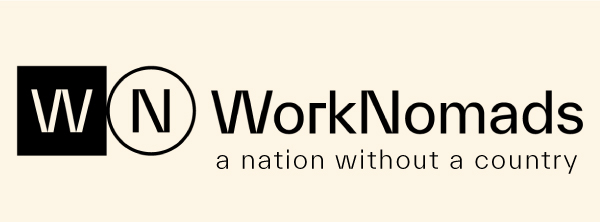Is Bulgaria joining Schengen this year? Implications for digital nomads
1 September 2023
Jennifer Haack
For those exploring Europe, the terms “Schengen” and the 90-day rule might ring a bell, especially for North American nomads. Yet, this topic can be puzzling even for Europeans.
Let’s break down what the Schengen Area is, where Bulgaria fits in, and how Austria and the Netherlands influence Bulgaria’s Schengen aspirations.
What’s the deal with Schengen?
Not all European countries are part of the Schengen area, but every Schengen member is a European country. Confusing, we know.
All members of the Schengen Area signed the Schengen Agreement. This pact means no more border checks, allowing its people to move freely among these nations. Bulgaria is part of the EU, but it’s not entirely in the Schengen club. So, when you cross its borders, there’s still the border passport drill. On the upside, this also means the time spent in Bulgaria doesn’t count toward your 90-day limit.
What is this 90-day rule?
Think of Europe like a club with different floors, not a one-size-fits-all arena. When people talk about the “90-day rule,” they’re usually discussing the Schengen Area, a set of visa rules for 27 European countries and a few non-EU clubbers. Again, confusing, we know.
Step right into the Schengen “club” – where you can party without a visa* for 90 days (within a 180-day rhythm). It’s like a 3-month VIP pass that lets you waltz in and out without any queue or re-entry door covers. After your 3-month party, take a breather for the next 3 months before hitting the dance floor again. The cool part? You can hop between Schengen and non-Schengen spots, just keep those entry and exit dates on your radar. Not your strong suit? The European Commission has your back with this tracker.
*a change is coming in 2024 and we’ll write about this separately.
What’s Bulgaria’s Schengen deal?
Let’s now navigate the complex waters of politics. Becoming a Schengen member is akin to gaining approval from a selective club of EU countries, each acting as a discerning bouncer. Bulgaria has been waiting patiently in the Schengen line, but its entry was blocked by the veto power of Austria and the Netherlands. However, in a recent twist France and Germany stood up and said, “Bulgaria and Romania should be granted entry” Finland and Sweden chimed in too. In contrast, the Netherlands seems a bit wary, and Austria joined the “not now” song as well. Why? Primarily due to their own domestic political landscapes and upcoming elections. For instance, Austria carries the badge of having the highest refugee application rate per capita in the EU (take that to your next trivia night).
However, in May, the European Commission took the stage and declared, “Hey, let Bulgaria and Romania in on the Schengen action!” Now, Bulgaria is leaving no stone unturned, even inviting Dutch and Austrian customs experts to examine their border setup and address migration apprehensions. It feels like watching puzzle pieces fall neatly into position, with Bulgaria orchestrating its moves to ensure a perfect fit. Considering the current landscape, all indicators point toward Bulgaria (and Romania) joining the Schengen club by late 2023 or early 2024.
What does this mean for Digital Nomads?
The key implication for digital nomads: your time in Bulgaria will now be considered part of the 90-day Schengen allowance. Think of it as a déjà vu with what happened with Croatia in 2023.
What if you want to stay in Bulgaria longer?
A specific “Digital Nomad Visa” doesn’t exist yet, but digital nomads can opt for the Bulgaria Freelance Professionals Visa, categorized as a type D visa.
Or you can check out our WorkNomads open positions here. We are always looking for exceptional talent from around the world, particularly experts in Industrialized and Software Engineering, Business Development, and Marketing & Design. But here’s the twist: We deploy services remotely to clients worldwide and equip our employees with the right paperwork so they’re ready to explore a nation without borders.
Happy nomading.
Have any questions or suggestions on topics to cover? Let us know in the comments.
HOW TO MAINTAIN PRODUCTIVITY AND MOTIVATION WHEN WORKING REMOTELY: 5 IDEAS TO STAY ON TRACK
4min read
3 May 2023
BUILDING COMMUNITY IN REMOTE WORK: BALANCING AUTONOMY AND CONNECTION
5min read
2 July 2023



Hello Jennifer. Do you know if the 31-March 2024 partial inclusion of Bulgaria into Schengen means that the country would now be included in the 90-day limit? The article I read says that they will continue issuing national entry visas and will not be issuing Schengen C visas yet. I’m wondering, maybe a little bit optimistically, if this means that they would still be excluded from the 90-day limit during the partial-inclusion period. Do you know additional info about this? Thank you.
Hi Trinity,
Based on the information we could find, the “partially” is mainly about the transport modes: sea, air, and land (currently not included, so still requires passport checks). Starting in March 2024, air and sea travel between Schengen nations will no longer require passport control. This also means, that since Bulgaria will be part of the Schengen Area, time spent in Bulgaria will count towards the 90-day limit. You can find more information here: https://etias.com/etias-countries/bulgaria-etias